Craig Sisterson is a writer and reviewer, and a fan of great crime writing. He's the force behind the Ngaio Marsh Awards celebrating New Zealand crime writing, starting the Awards in 2010 and now serving as the judging convenor for the prizes.
Read our interview with Craig where he talks Kiwi crime, #yeahnoir, the Ngaio Marsh Awards, and libraries.
This year, you can join in as Scorpio Books and WORD Christchurch present The Great Lit Quiz & Ngaio Marsh Awards!
To celebrate NZ Bookshop Day, put together a team of book enthusiasts for a quiz of crime novels and other genres! All tickets gain entry to the invitation-only Ngaio Marsh Awards cocktail party, where the winners will be announced. Hosted by crime writers Paul Cleave and Vanda Symon.
The Bone Line wine and nibbles provided.
Saturday, 28 October, 5.30pm Ngaio Marsh Awards; 7pm Great Lit Quiz
$80 per table (up to 5 players) by emailing rsvp@scorpiobooks.co.nz
- Like the Ngaio Marsh Awards on Facebook
- See our listing of previous winners and finalists:
- Ngaio Marsh Award for Best Crime Novel
- Ngaio Marsh Award for Best First Novel (first awarded 2016)
- Ngaio Marsh Award for Best Non Fiction (2017 is the first year of this award)
Craig Sisterson
How did the idea for the Ngaio Marsh Awards come to you?
It was a culmination of a lot of little things. I'd started reading a lot while backpacking through Latin America for six months, picking up dozens of novels from hostel book exchanges and the like to pass the time on 24-hour bus rides in Argentina and Chile. The hostels tended to have plenty of 'popular fiction' (crime, romance, sci-fi, action thrillers etc), and I gravitated towards the crime novels, having loved mystery tales since I was a kid devouring The Hardy Boys adventures when I was at Richmond Primary School in Nelson.
Then when I was in Canada I went along to an Arthur Ellis Awards event at the Vancouver Public Library (a crime author panel where the finalists for their national crime writing awards were also announced). I met some really cool Canadian crime writers, including the great William Deverell, and had a really good chat with him afterwards about recognising and celebrating quality writing, and how the crime genre was much deeper nowadays than the stereotype of old-fashioned mysteries, potboilers, and airport thrillers.
As an aside, I spoke with the Canadians about the state of New Zealand crime writing (they were curious), and even lamented that other than Dame Ngaio and Paul Thomas's series, and one-offs from the likes of Simon Snow, Nigel Latta, and Michael Laws, we didn't seem to have as many crime writers as you'd expect for a country that has some really great writers (Oscar-nominated screenwriters, Man Booker listees, fabulous children's authors, great longform journalists, etc). Or at least we didn't have many ongoing series or crime writers putting out multiple books. It's embarrassing to look back on that discussion now, because NZ does have a greater crime writing history than I knew about at that time, but perhaps the fact I was a keen reader who still wasn't aware of that was telling too?
When I returned to New Zealand in October 2008, I popped into the Papatoetoe Library my first weekend to keep feeding my reading habit. By chance, a couple of crime novels on the recently returned shelf caught my eye. I picked them up, was taken by the backcover blurbs, and was surprised to read they were set in New Zealand: Cemetery Lake by Paul Cleave and The Ringmaster by Vanda Symon. Not only were they modern NZ crime novels, but each was from an author who'd published more than one novel!
I read them both that weekend, before I started my new job at a legal magazine (I was a lawyer before my overseas adventures). Both were terrific, really top quality stuff. Great characters and writing, coupled with page-turning action and suspense. And both books were as good if not better than many of big-name international bestsellers I'd been reading on my Latin American journey.
So my thoughts about the state of NZ crime writing began to shift. Then my new boss asked if I'd read any good books lately, as a review for our magazine hadn't come in before deadline. So I wrote reviews of Cleave and Symon's books, and took off from there. Soon afterwards I was reviewing crime fiction for Australian magazine Good Reading, as well as some other publications. I reviewed a few dozen crime novels for them over the next year, including Kiwi authors like Cleave, Symon, Lindy Kelly, Neil Cross, and Paddy Richardson. The Kiwi crime novels stood up really well against the well-known international stuff, and I started thinking 'why aren't we talking about our crime writers more?' On top of that, I realised that while Canada, Australia, the UK, the USA, and many other countries had crime writing awards, New Zealand didn't. Our popular fiction writers were unlikely to be listed for the NZ Book Awards, but at least our romance, sci-fi and fantasy authors had their own associations and awards. So did our children's authors.
Our crime writers did not. That kept niggling at me the more reviews and features I wrote about the genre, and when I raised the possibility of a New Zealand crime writing award with authors, publishers, reviewers, and others in the book industry, pretty much everyone thought it was a great idea in principle. There was a gap between principle and putting it into practice though. And in the end I just got to the 'ah bugger it, I'll just start them myself then' stage. By then I had lots of contacts in New Zealand and overseas, and called on various people for advice. Crime Writers Canada and the Australian Crime Writers Association were very generous and shared with me how their awards started, evolved, and were run. I cherry-picked various things to create our own awards.
How hard was it to set up a literary prize?
How long is a piece of string?, as my mother would say. It's really hard to answer your question. Looking back it all seemed to go quite smoothly, though that could be my rose-tinted glasses! At the time there were plenty of bumps in the road, for sure, but we just rolled with the punches, adapted, and kept on going (how many cliches can I fit in a paragraph?). We were creating something new, so there was no blueprint (other than advice from overseas peers), so if something wasn't working or went wrong, I just changed it.
My core concern was to make sure that the awards had a good level of credibility, even if we weren't offering the winner a big amount of prize money. I just really wanted the awards to be sustainable, not a one-off, and to have some 'heft', for want of a better term.
That was achieved (I think) thanks to the really top-notch judges we've had from the beginning, and the support of WORD Christchurch. We have a large judging panel for the Best Crime Novel prize; seven judges from New Zealand and overseas. All are crime fiction experts, so we had people who were connoisseurs of the genre and read an awful lot, weighing up the quality of our local crime tales. In the first years we had the likes of legendary British reviewer Mike Ripley (who was the Daily Telegraph's crime reviewer for 17 years), Vice President of Crime Writers Canada Lou Allin, and doyen of the Kiwi books scene Graham Beattie on the panel.
More recently Janet Rudolph (editor of Mystery Readers International), J Kingston Pierce of Kirkus reviews, top Australian crime reviewer Karen Chisholm, and award-winning Icelandic crime writer Yrsa Sigurdardottir have served on the judging panel.
These people may not be household names, but they are extremely highly regarded within the global crime writing world, and their involvement has given the Ngaios a lot of credibility on the global stage. They read a massive amount of crime fiction, from the biggest names to new authors and many in between, and when they say our Kiwi authors are world class, that carries a lot of weight.
The other main pillar of the Ngaios from the beginning was the involvement of what is now WORD Christchurch. I wanted a cool event for our first ever Ngaio Marsh Awards presentation in 2010, and Ruth Todd and Morrin Rout of the Christchurch Writers and Readers Festival really came to the party. They were so supportive, and planned a terrific event for the Saturday night of their festival, which even included the Court Jesters doing an improv murder mystery, before the inaugural winner would be announced. The festival also put up some prize money for the winner (adding to the handcrafted trophy created by sculptor Gina Ferguson and selection of Ngaio Marsh books donated by HarperCollins, Dame Ngaio's publisher). As Dame Ngaio was a Cantabrian herself, it was a perfect fit.
Then the September earthquakes struck, the festival was cancelled, and our event postponed. Not the greatest start! But Ruth and Morrin continued to be so supportive, even as they were dealing with all the property damage and other concerns. We had offers from other festivals to hold an event in other cities, but stuck with Christchurch. We had a cool one-off event in a temporary venue that November, where the pseudonymous Alix Bosco won the inaugural prize for Cut and Run (fittingly, an author whose identity was then a mystery won our first-ever Kiwi mystery writing prize).
I get a lot of credit for starting the awards, but in truth there have been so many people involved, and it is the mana of those people that have made the awards what it is. Along with our authors, judges, and the libraries who've come on board with our Murder in the Library series that started in 2015, I'd like to give a nod to Marianne Hargreaves and Rachael King of WORD Christchurch, who've done amazing things and had to deal with me flitting about all over the world and not being the easiest to work with. Because of all those great people it hasn't seemed all that difficult to set up and run a literary prize, even if there have been difficult moments.
What is it about Aotearoa that make us bat above our weight in the crime writing stakes?
Hmm... I think we have some great writers, across all different styles of storytelling. So our talented crime writers are just part of that wider group of great authors. (Seriously, whatever type of stories take your fancy, you can find great Kiwi books; compelling, page-turning, thought-provoking tales. Give some of our authors a go, whatever genre you love.)
In terms of crime writing in particular, I think our Kiwi authors often have a willingness to push the boundaries of the genre. Check out Adam Christopher's Ray Electromatic series that's pure 1960s LA noir, just with a robot detective, or some of our literary-crime crossovers like Tanya Moir's The Legend of Winstone Blackhat and Fiona Sussman's The last time we spoke, or Paul Cleave's latest A killer harvest which you'd call magic realism if he was a literary author. And that's just a few examples.
Our authors certainly don't feel constrained by the traditional tropes of the crime genre. Many of our Kiwi crime novels also have a great, subversive sense of humour, even the tales that are dark and serious. Many of our authors also have a good touch for landscapes, whether countryside or urban. But in the end, even if many people think of crime fiction as being primarily plot-focused, the best crime fiction often comes down to character - and our Kiwi authors have created some really terrific crime characters!
Can you suggest 3 titles that epitomise #yeahnoir for readers who haven’t tried Kiwi crime?
Just three? Sheesh, that's tough. I'd probably give you a different answer depending on what day, or time of day, you asked me, but here goes. Oh, I'll leave aside all our terrific Ngaio Marsh Awards winners, other than to say you can't go wrong with picking a crime novel to try from Paul Cleave, Paul Thomas, Alix Bosco, Ray Berard, Neil Cross, and Liam McIlvanney.
Instead, I'm going to choose three other books that are really great, and very 'Kiwi' crime reads:
Bound Vanda Symon: the fourth tale in a really terrific series starring young Dunedin detective Sam Shephard. A successful businessman is murdered during a brutal home invasion, with his wife tied up and left to watch. Sam's colleagues zero in on two local crims who've been on the police hit list for a while, but she's not sure it's so cut-and-dried. Sam is a terrific crime character, and the whole series is great, but I particularly like this instalment. Vanda Symon has a nice balance of plot, character, and setting, creating a page-turner with plenty of character depth. Sam has that maverick, trouble-with-superiors essence of crime fiction top cops like Harry Bosch (Michael Connelly) and John Rebus (Ian Rankin), but as a younger woman she layers in plenty of freshness too. There's a great sense of humour in these books, and Sam is a fierce southern lass who's her own woman.
Hunting Blind Paddy Richardson: like her fellow southern crime queen, Richardson has written several really terrific crime novels, but unlike Symon she has focused on standalones rather than series books. Hunting Blind is a great place to start, a chilling thriller which centres on Stephanie, a psychiatrist whose sister vanished from a lakeside picnic seventeen years ago, fracturing the family and community. Then a new patient tells an eerily similar story, causing Stephanie to reexamine her sister's disappearance, and sending her on a dangerous and emotional journey around the South Island, searching for long-hidden answers. This is a really terrific novel that was a Ngaio's finalist in 2011 and really wowed our international panel. Richardson is a master at crafting layered characters who resonate with the reader, and delivers a terrific flavour of the south.
The Sound of her voice Nathan Blackwell: a superb tale from a new author who's recently joined the #yeahnoir ranks (the Twitter hashtag for NZ crime fiction created by Steph Soper of the NZ Book Council). Blackwell is the pseudonym for a former Auckland detective who was involved in covert operations and investigated very serious real-life crimes. Whoever he is, he's certainly hit the ground running in the crime fiction world, with a belter of a debut. Detective Matt Buchanan is burnt out, worn down by a succession of tough cases, and haunted by the unsolved disappearance of a young girl years before. Some fresh leads give him hope, but also threaten to draw him across lines that shouldn't be crossed. Blackwell showcases the courage of Kiwi crime writers in tackling tough issues, giving readers a dark, authentic insight into the stresses the police face.
What do you think about libraries?
In short, libraries are bloody awesome!
I was a sports-loving kid growing up in Nelson, but I also loved spending time in my school and local public library. I discovered so many wonderful authors and books thanks to the librarians, and they cemented my lifelong love of reading. Libraries are so vital to communities, providing information and entertainment, cultivating learning, bringing people together. They're egalitarian and democratic, opening up doors for anyone regardless of your background or means. Yeah, I think they're pretty cool.
More about Craig, Ngaio Marsh, and the Ngaio Marsh Awards
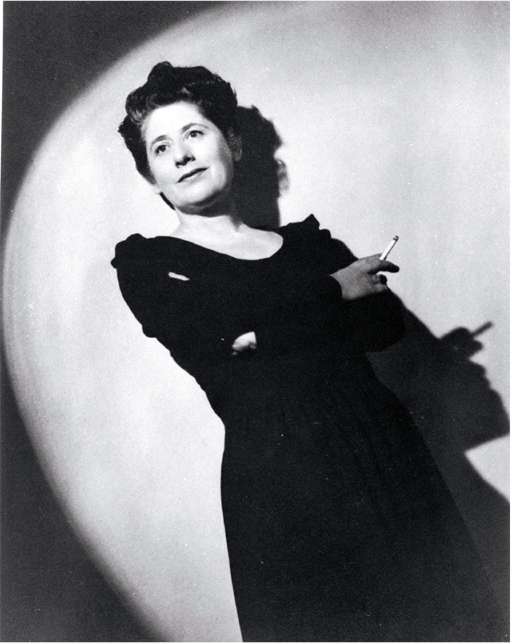
- Craig's blog Crime Watch
- Our page on the Ngaio Marsh Awards
- Our page about Ngaio Marsh
- Author Stella Duffy at the WORD Christchurch Autumn Season 2017 talking about finishing Ngaio Marsh's book Money in the Morgue

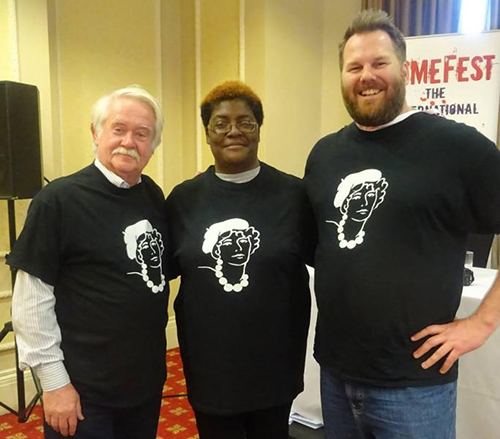
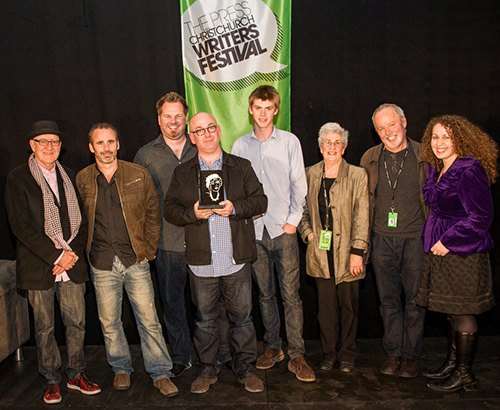
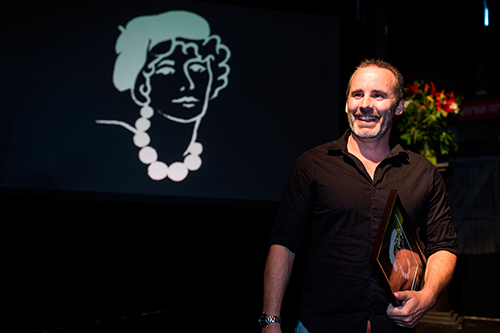
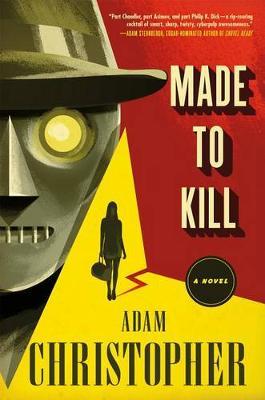
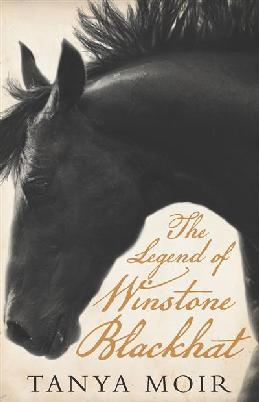
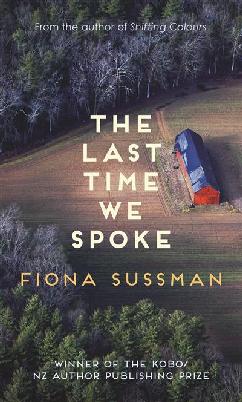
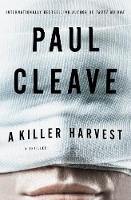


Add a comment to: Yeah! Noir!: Craig Sisterson and the Ngaio Marsh Awards